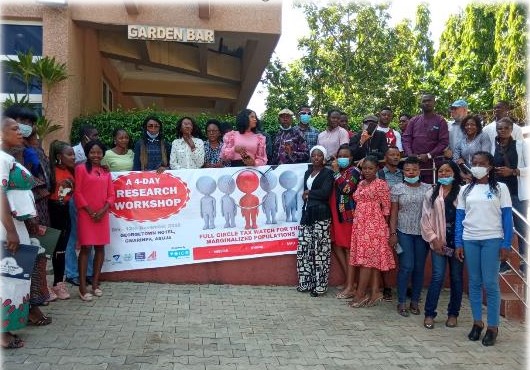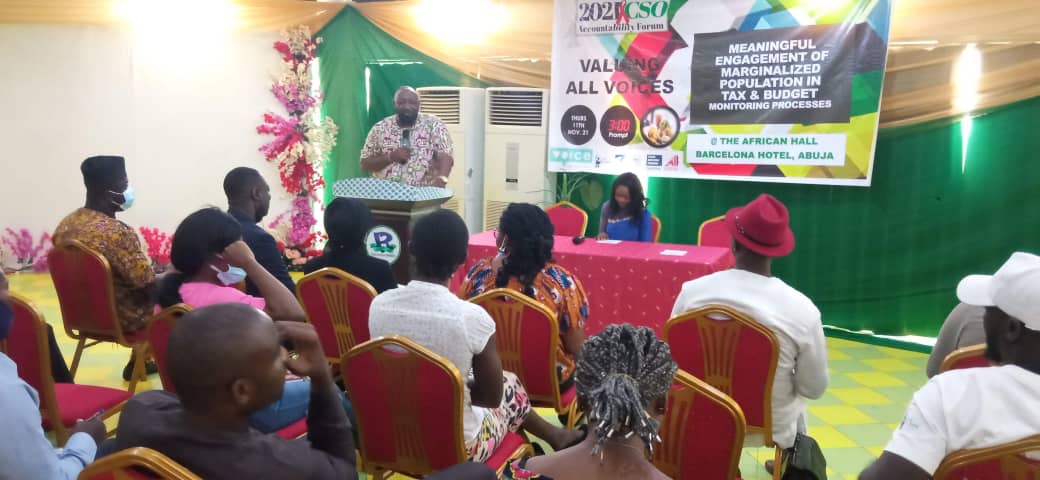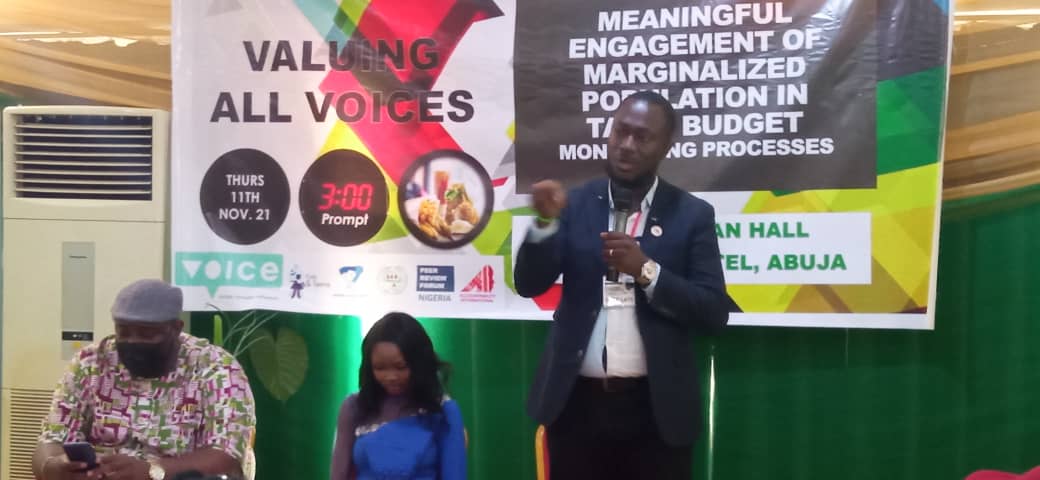Full Circle Tax Watch For Marginalized Population in Nigeria, Mali and Ghana
The Full Circle Tax Watch project aimed to empower young people, with a specific focus on gender minorities and persons with disabilities, across Ghana, Nigeria, and Mali was implemented as a Consortium of Civil society organizations with the support of Voice Global. The primary goal of this project is to enhance social accountability around fiscal issues, particularly taxation and public budgeting. Also to improve access to comprehensive social services, with a particular emphasis on healthcare and education.

In Nigeria, the project partners Kids & Teens Resource Centre and Peer Review Forum Nigeria; Society for AIDS in Africa (SAA) in Ghana and the Arcad Sante Plus in Mali all worked together to promote greater inclusion of marginalized communities in fiscal policy-making and practices. The vision is to first, expand institutional support for the inclusion of marginalized people in engaging with tax policy reforms and budget monitoring. Secondly, to enhance the understanding of budget and fiscal monitoring, pro-poor tax policy, efficient tax collection, and public budget allocations among organizations addressing the health and education needs of marginalized populations.
In achieving these, implementing members who are trained personnel, trained members of these marginalized communities (MCs) which includes People Living With HIV (PLWHIV) PLWD, People with Albinisms, Sex Workers, MSM amongst others. This is to empower them with the right knowledge needed so they can further sensitize those in their communities.

By leveraging on the partnership with organizations already addressing the health and educational needs of marginalized populations, the project ensured long-term sustainability and cost-effective means to bridge the gap between fiscal policies and social services, creating a more inclusive society. The design phase of the project laid a strong foundation for future endeavors, focusing on young people, gender minorities, and persons with disabilities, to ensure their voices are heard and their needs addressed.

Through this strategic partnerships and innovative approaches, the project successfully empowered marginalized communities in Ghana, Nigeria, and Mali to actively participate in fiscal accountability. The collaboration between marginalized community experts on tax and budget created a powerful exchange of knowledge, resulting in tangible improvements in social services access for marginalized communities.
So far, the Project has been very successful in achieving its goal and is still pushing as there are still more engagements to be done to ensure inclusion of these groups in tax and budget making decisions.
